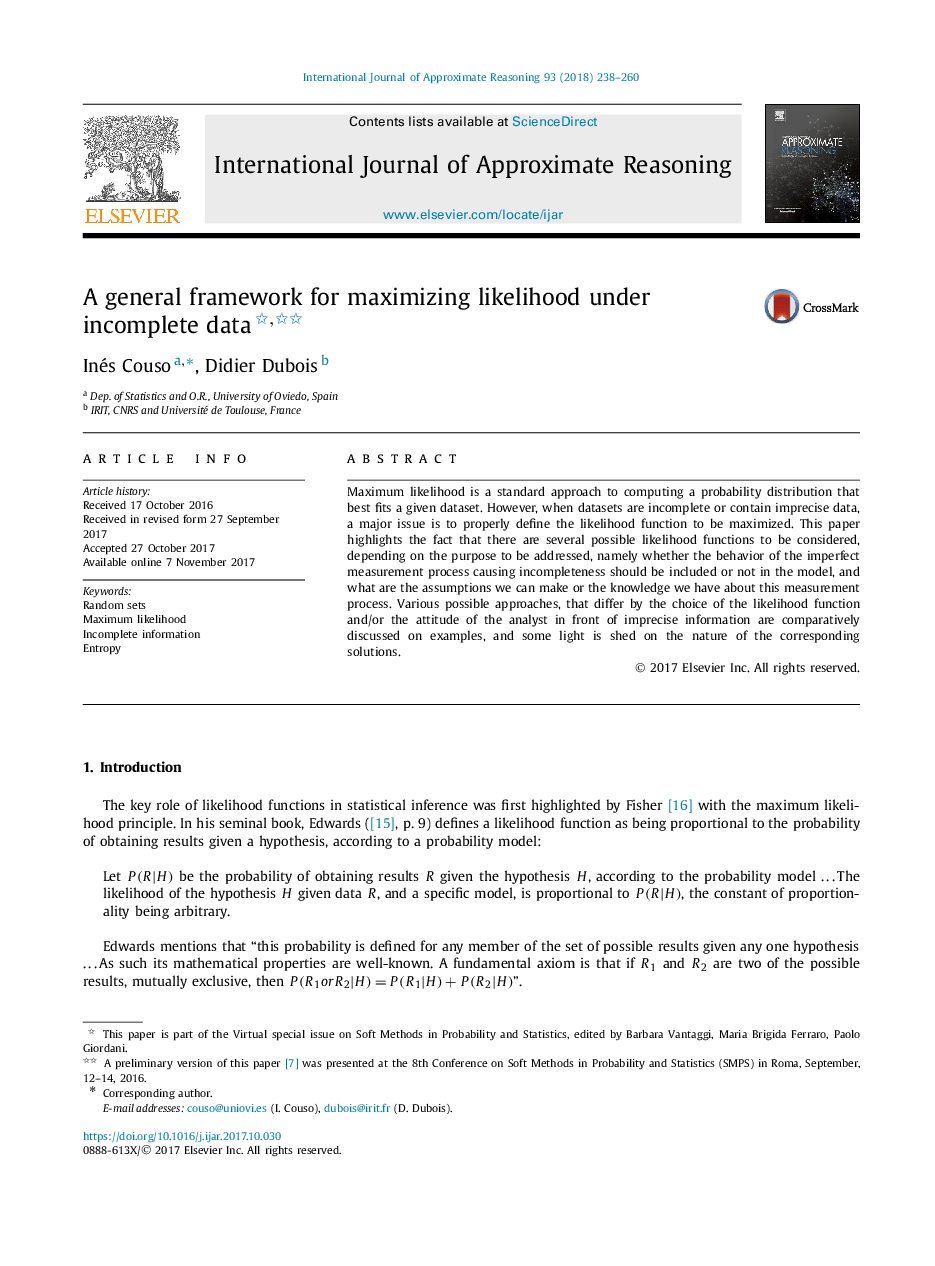| کد مقاله | کد نشریه | سال انتشار | مقاله انگلیسی | نسخه تمام متن |
|---|---|---|---|---|
| 6858828 | 1438411 | 2018 | 23 صفحه PDF | دانلود رایگان |
عنوان انگلیسی مقاله ISI
A general framework for maximizing likelihood under incomplete data
ترجمه فارسی عنوان
یک چارچوب کلی برای به حداکثر رساندن احتمال زیر داده های ناقص
دانلود مقاله + سفارش ترجمه
دانلود مقاله ISI انگلیسی
رایگان برای ایرانیان
کلمات کلیدی
مجموعه های تصادفی حداکثر احتمال، اطلاعات ناقص، آنتروپی،
ترجمه چکیده
حداکثر احتمال یک رویکرد استاندارد برای محاسبه توزیع احتمالی است که بهترین مجموعه داده را دارد. با این حال، هنگامی که مجموعه داده ها ناقص یا حاوی داده های نامشخص است، یک مسئله مهم این است که به درستی تعریف تابع احتمال را به حداکثر رساندن. این مقاله به این واقعیت اشاره دارد که چندین توابع احتمال احتمال وجود دارد که بسته به اهدافی که باید مورد توجه قرار گیرند، در نظر گرفته شود، یعنی اینکه آیا رفتار فرایند اندازه گیری ناقص باعث ناتمام بودن می شود یا نه در مدل، و فرضیه های ما چیست می تواند یا دانش ما در مورد این فرآیند اندازه گیری را داشته باشد. رویکردهای مختلف ممکن است که با انتخاب تابع احتمال و / یا نگرش تحلیلگر در مقابل اطلاعات نامشخص مقایسه می شود در مورد نمونه ها، و برخی از نور بر روی ماهیت از راه حل های مربوطه رها می شود.
موضوعات مرتبط
مهندسی و علوم پایه
مهندسی کامپیوتر
هوش مصنوعی
چکیده انگلیسی
Maximum likelihood is a standard approach to computing a probability distribution that best fits a given dataset. However, when datasets are incomplete or contain imprecise data, a major issue is to properly define the likelihood function to be maximized. This paper highlights the fact that there are several possible likelihood functions to be considered, depending on the purpose to be addressed, namely whether the behavior of the imperfect measurement process causing incompleteness should be included or not in the model, and what are the assumptions we can make or the knowledge we have about this measurement process. Various possible approaches, that differ by the choice of the likelihood function and/or the attitude of the analyst in front of imprecise information are comparatively discussed on examples, and some light is shed on the nature of the corresponding solutions.
ناشر
Database: Elsevier - ScienceDirect (ساینس دایرکت)
Journal: International Journal of Approximate Reasoning - Volume 93, February 2018, Pages 238-260
Journal: International Journal of Approximate Reasoning - Volume 93, February 2018, Pages 238-260
نویسندگان
Inés Couso, Didier Dubois,
